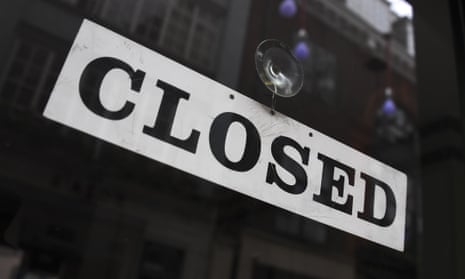UK restaurants are going bust at a faster rate than during the Covid crisis owing to a “toxic mix” of surging energy costs, staff shortages and falling bookings.
Closures in the sector rose by 60%, with 1,567 insolvencies over 2021-22, up from 984 during 2020-21, according to a study by the advisory firm Mazars. The figure includes 453 over the past three months, up from 395 in the previous quarter.
“Insolvencies of restaurant businesses are now happening at a far faster rate than during Covid,” Rebecca Dacre, a partner at Mazars, said. “It is a very toxic mix of rising input costs, sharply rising finance costs and weak demand. Most restaurateurs have not seen this combination of negative factors before.”
Industry lobby groups including UK Hospitality and the British Beer and Pub Association said last month that more than a third of hospitality businesses could go bust by early 2023.
While the industry experienced a rebound in business this summer after a string of forced closures during Covid lockdown periods, restaurants are now struggling with surging inflation, which has not only increased the cost of energy, food and drinks, but meant their customers have less money to spend on going out.
Barclaycard recently reported that more than half of Britons were planning to cut down on essential spending, raising concerns about revenues from the Christmas period, when many businesses make the bulk of their profits.
Some firms are also struggling to recruit enough employees as post-Brexit rules on migration block EU citizens from working in the UK. This has contributed to higher wage inflation.
Mazars said the combined pressures were likely to spell a tough few months for the industry, despite the usually lucrative holiday period.
“The Christmas trading period is usually a bumper period for hospitality businesses. However, restaurants will be bracing themselves for a very tough winter and many face a real battle to keep afloat,” Dacre said. “There’s a certainty of further insolvencies if they don’t receive much more support from the government, but the chances of the government fully turning on the taps is low.”
after newsletter promotion









